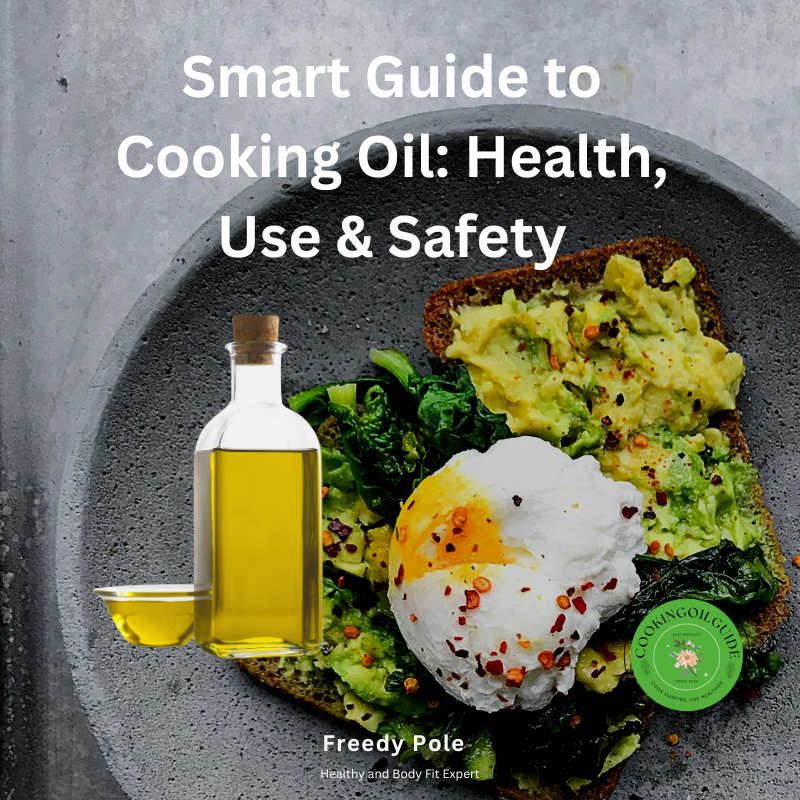Smart Guide to Cooking Oil: Health, Use & Safety
Smart Guide to Cooking Oil: Health, Use & Safety
Couldn't load pickup availability
Discover how cooking oil affects your body and how to choose the best oil for daily use.

Why Cooking Oil Matters
Cooking oil is used in almost every kitchen, yet its impact on health is often misunderstood. This free guide explains how different oils affect your body. It also helps you make better choices for daily cooking.
In addition, you’ll learn about the types of fats in oils and why some are better than others. The goal is to help you cook smarter, live healthier, and reduce waste in your kitchen.
🥄 Which Cooking Oil is Best?
Not all oils are created equal. Some are rich in good fats, while others can raise your risk of heart disease.
We break down:
- The healthiest cooking oils (like olive, avocado, and flaxseed)
- The best cooking oil for frying (such as peanut or sunflower oil)
- Which cooking oil is good for you depending on your diet and cooking style
Moreover, you’ll learn which oils are best for high-heat, low-heat, or raw recipes.
🔥 Can You Cook Without Oil?
Yes — and it’s easier than you think. For example, you can try:
- Water sautéing
- Steaming vegetables
- Roasting with parchment paper
- Air frying
These methods reduce fat while keeping flavor. As a result, they’re ideal for people looking to eat cleaner or follow a plant-based lifestyle.
🧪 How is Cooking Oil Made?
Ever wonder how oil gets from the plant to the bottle? We explain:
- Cold-pressed oils (no heat, more nutrients)
- Refined oils (high smoke point, but fewer nutrients)
- Expeller-pressed methods (a balance between the two)
This helps you choose oils based not just on taste or use, but also how they’re processed.
🗑️ Safe Use and Disposal
Cooking with oil comes with responsibility. For instance:
- Can cooking oil go down the drain? No — it can clog your pipes and harm the environment. Instead, collect used oil and dispose of it at a proper facility.
- Can cooking oil go bad? Yes. Over time, it can spoil or turn rancid. We show you how to store oil properly.
- Are cooking oil bottles recyclable? Usually yes, especially glass. However, check your local recycling rules for plastic containers.
Therefore, cooking oil choices also affect sustainability and kitchen safety.
🧠 What You’ll Learn
By reading this free guide, you’ll gain the knowledge to:
- Choose the right oil for health and taste
- Understand oil labels and processing methods
- Cook without oil when needed
- Avoid common kitchen mistakes
- Protect your plumbing and the planet
Follow me on Ko-fi.com/freedy


